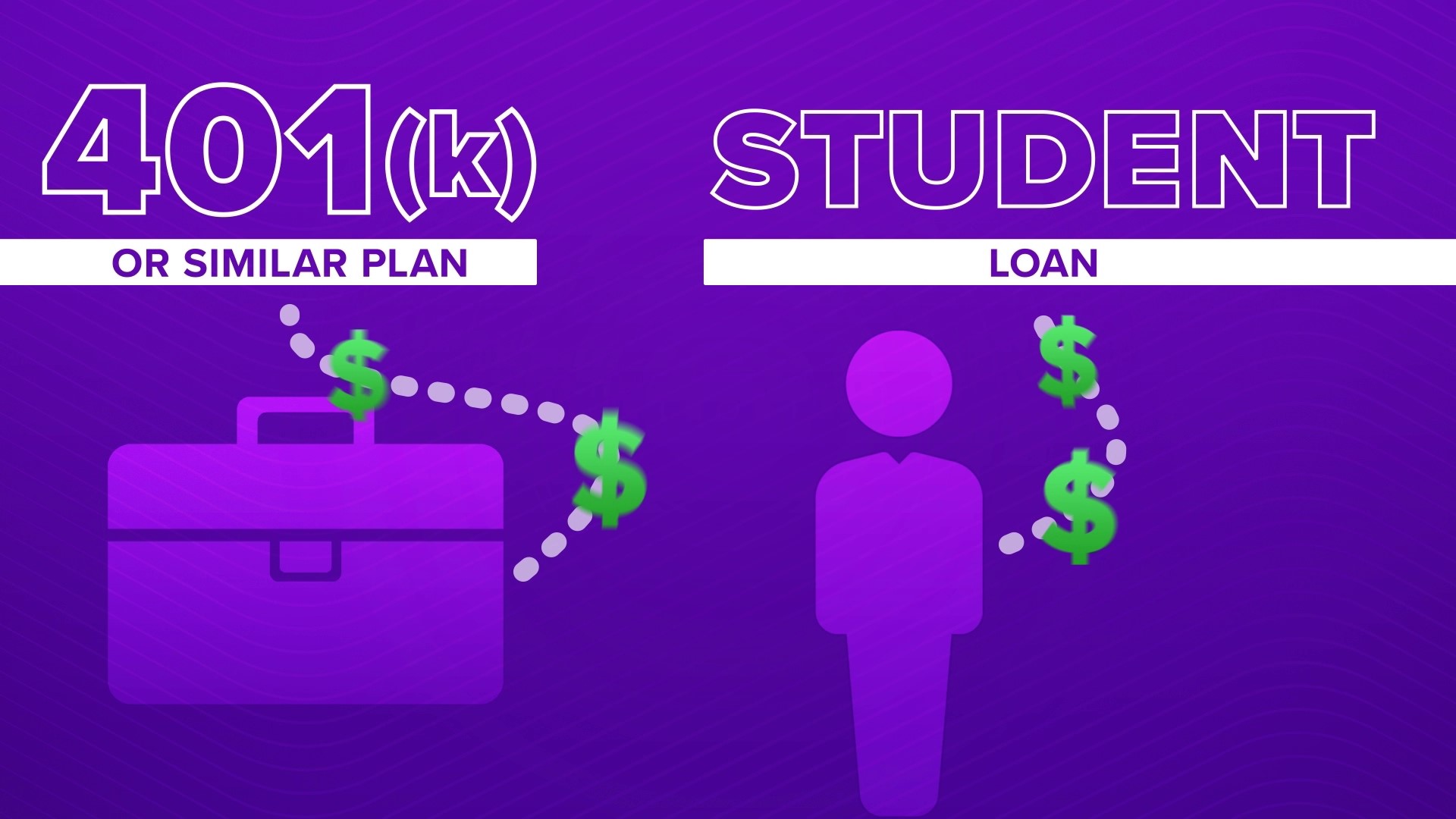DALLAS — In 2024, your retirement nest egg might have a nice growth spurt, but don’t count that chicken before it hatches. In 2022, President Joe Biden signed into law the SECURE 2.0 Act.
We have reported on this several times. There is a provision that begins this year that says if you have 401(k) or similar retirement plan and you are paying off a student loan, your employer can treat that as though you are making contributions to your retirement plan and can make matching contributions.
Some companies offering new benefit. Many others may be hesitant.
Chipotle just announced it will take advantage of the provision and begin offering this as an employee benefit. Will other companies follow suit? So far, surveys have revealed a lot of reluctance.
The HR firm Alight Solutions says last fall it surveyed 87 organizations employing almost 3 million workers and found only 16% of the employers were “definitely” or “likely” adding this benefit, and just 21% of those said they would do it soon.
Also, the retirement consulting giant Mercer says it hasn’t seen any plan sponsors offering the benefit yet, despite the fact that when Mercer surveyed workers in 2022, it found the idea of retirement matching based on student loan payments was identified by employees as their second favorite retirement plan idea, right behind a bigger employer match.
Many who have student loan debt say it compromises their retirement savings. One survey by Corebridge Financial in late 2023 found that 75% of student loan borrowers said paying off that debt will impact their ability to save for retirement. They found that number increases to 77% among borrowers earning less than $50,000.
Potential inspiration for other employers considering this
Maybe this will inspire some reluctant employers: Corporate giant Abbott has been offering this kind of match for years with a program called Freedom 2 Save. Abbott explains it like this: “If benefit-eligible employees apply at least 2% of their eligible salary toward paying down a qualifying student loan, they will receive a 5% company contribution into their Abbott 401(k) annually.”
For anyone who is about to pound the desk and wonder why only those with student loan debt are offered such a sweet deal, Diego Martinez, the DVP of Benefits and Wellness at Abbott, says the same deal is available to those without student loan debt. He says workers who contribute 2% to their 401(k) also get the 5% corporate match.
Martinez says this has all been instrumental in helping the company retain employees. “Employees who are participating in Freedom 2 Save are 19% more likely to stay,” and he says that is not just the younger entry-level workers who just graduated from college and have loan debt.
Abbott has found this to be an especially important benefit for coveted workers with advanced degrees, who have more student loan debt and who might be entering the workforce at an older age, already behind in retirement savings.
Abbott proudly proclaims on its Freedom 2 Save site that this provision of SECURE 2.0 “‘was inspired by Freedom 2 Save”, which started in 2018, when the company received special permission from the federal government to start the program.
Martinez boasts, “That was something that was never done before. There was no road map to follow. We were able to get an IRS private letter ruling that allowed us to do that.”
Since 2018, Martinez says 2,600 Abbott workers have taken advantage of the offer and that the company has contributed an additional 5.5 million matching dollars.
Abbott has a goal of paying out 10 million matching dollars by 2030. Martinez says this isn’t considered to be an ‘additional’ expense. He says this is money the company has earmarked for retirement matching anyway, and that they are just finding a way to make sure those matching dollars actually make it into the retirement accounts of their employees.
That's at Abbott. Workers at other companies should talk to someone in their human resources department about whether the employer has plans to offer this kind of program.
Some companies might be put off by how to administer this kind of program, because of logistics like tracking student loan payments. But Martinez says that's gotten a lot easier. “
When we started there wasn’t a solution," he said. "Now, there's a lot of players in the marketplace that can do that really well.”
In hopes of encouraging other companies to start their own programs, Abbott is sharing lessons learned.
“We've seen a lot of interest from employers to offer programs like this and that's the reason why we came out with the blueprint where we share our story…we share our experience," he said.

